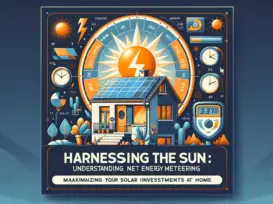Grus Home Energy - Energy Grid Credits
Unlocking the Potential of Energy Grid Credits: A Future of Sustainable Power
Unlocking the Potential of Energy Grid Credits: A Future of Sustainable Power
As the global push for sustainability gathers momentum, energy grid credits have emerged as a transformative tool in the quest for a cleaner future. These credits represent a critical innovation in energy management, serving as a currency for the exchange of surplus renewable energy among consumers and utilities. In an era where renewable energy sources like solar and wind are becoming more prevalent, the integration of energy grid credits is vital for ensuring that the excess power generated does not go to waste.
Energy grid credits operate on a simple principle: when a household or business generates more renewable energy than it consumes, the surplus is fed back into the electrical grid. In return, the energy provider issues credits to the contributor, which can be used to offset electricity costs during periods when their energy production falls short of their consumption needs. This system promotes the use of renewable energy by providing a tangible financial incentive to both produce and consume it efficiently.
One of the most significant advantages of energy grid credits is the democratization of energy production. With this system in place, anyone with the capability to install renewable energy systems can become a micro-energy producer. This decentralization not only reduces the load on the central power grid but also encourages a network of small-scale, local energy producers, enhancing the resilience of the overall energy infrastructure against disruptions.
Moreover, energy grid credits are instrumental in flattening peak demand curves. By allowing energy users to draw on credits during times of high demand, the system reduces the strain on the grid. This is particularly valuable during extreme weather events or other situations where the grid might be vulnerable to overloading. Instead of firing up additional, often fossil-fueled power plants to meet the surge in demand, utilities can rely on the distributed energy resources backed by grid credits.
Another benefit is the encouragement of responsible energy consumption patterns. Knowing that excess energy can be stored as credits incentivizes consumers to be more conscious of their energy use. This heightened awareness can lead to reduced energy consumption overall, which is a boon for both the environment and the economy.
The integration of energy grid credits also comes with challenges, especially regarding the infrastructure and regulatory frameworks required to manage them effectively. There is a need for advanced metering infrastructure that can accurately monitor and record energy production and consumption in real-time. Furthermore, regulations must ensure that the credits are fairly valued and easily transferable between different parties, fostering a seamless energy market.
On a broader scale, energy grid credits play a crucial role in the transition to a low-carbon economy. By making renewable energy more accessible and financially attractive, these credits can accelerate the phase-out of fossil fuels. As renewable technology continues to advance and become more cost-effective, the market for energy grid credits is likely to expand, supporting the growth of a sustainable energy ecosystem.
In conclusion, energy grid credits represent a promising avenue for advancing sustainable energy practices. They offer a multitude of benefits, including energy democratization, enhanced grid resilience, and the promotion of responsible consumption. As the world continues to confront the challenges posed by climate change, the implementation of energy grid credits stands as a beacon of innovation, guiding us towards a cleaner, more sustainable future for all.
©2025 All Rights Reserved. Grus IoT Co.,Ltd.
